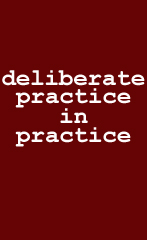 I met Reg Klopfenstein in 1976. He stood behind me in band in college.
I met Reg Klopfenstein in 1976. He stood behind me in band in college.
He was in band because he was a musician. He stood because he was a percussionist. He was behind me because I played tuba.
I was not a musician. I started playing tuba in 8th grade because I wanted to learn standup bass and the director talked me into tuba. I played all four years in high school because there was a shortage of tuba players. I played in college because I wanted to. Fourth chair.
Reg, on the other hand, was a musician. He played every percussion instrument with precision and practice. Before band, while on tour, after band, he was practicing. Reg practiced everything, including the triangle. He would shine on the tuned percussion instruments like marimba and chimes.
Reg was serious. I wasn’t.
After my sophomore year, I dropped out of band. I realized that if I wanted to stay, if I wanted to actually be part of the music of the band, I would need to start practicing. And I wasn’t ready to do that. I was a communication major. I wouldn’t make my living in music, I knew. I was more likely to do something with broadcasting, with production.
We didn’t stay in touch after we stopped seeing each other a few times a week. Turns out, he spent part of that time with the Honolulu Symphony Orchestra. His practicing made him a performer. A few years ago I started hearing about him again from his aunt. He was a professor at Bethel College, I discovered, teaching music. I remember thinking, “He’s doing what he always did. And what I quit.”
 A couple years ago, I came to Grabill Missionary. I discovered that his parents are here. I discovered that he grew up here. Long before I met him at Wheaton, Reg had been practicing and performing as a percussionist.
A couple years ago, I came to Grabill Missionary. I discovered that his parents are here. I discovered that he grew up here. Long before I met him at Wheaton, Reg had been practicing and performing as a percussionist.
A couple weeks ago, Reg brought his college jazz band to play for a coffeehouse. I got to watch him lead, heard the band that he was leading. He looked a bit like Art Katterjohn, the director that we both had in college, a guy who cared about people and music.
And as I watched and thought, I realized that both Reg and I made the right choices back in college. Reg chose music. He chose to practice, to study, to play.
My choice has always felt more complicated. I have felt at times like I chose against music, that somehow I gave up something significant. I understand the significance of what I get to do, working with lives. But that sense of quitting has lingered. What I realized that night, however, is that I didn’t choose against music, I chose for the story. I have spent the years since we last met learning how to help people understand.
To feel bad about giving up what I wasn’t willing to work for is a waste of energy.To put that energy into what I chose makes all the sense in the world.
And what about you? Are you spending your time wondering if you made the right choice? Or are you spending your energy making the choice right?








